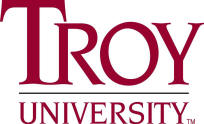May 21 Workshop Lesson (1 of 3): Useful
Resources in Overcoming the Challenges of African-American Genealogical Research
Research Skill Level:
Beginner, intermediate
There are many essential
records and a mixture of procedures to follow with African American family
research, just as there are for American Indians or other specialized groups in
our country. Each produces records
under an array of conditions and time-periods.
Genealogical research in any period of history has a basic format to
follow. This lesson will introduce
some ways around some of the obstacles to finding segregated records.
Family memory is a critical component of
family history, especially for African Americans.
It is important to learn all about the family’s recent generations
first—both orally and physically, and look at their memorabilia, such as scrap
books, funeral programs, pictures, family bibles just to name a few of the
sources located in the family environment.
Social media and the Internet can help expand the family history and reach other branches of the family if it is applied correctly. With the explosion of family history research on the internet, it is falsely believe that all you need to do is research the family history using the internet and you locate all of the information you will need on your family. According to “Internet Usage Statistics - 2015,” 44.8% of internet users are Asian users and 11.4% are North American users. Less than that are actually placing information about their families on the internet.
We will also discuss when
the time is right to stop researching and start organizing.
Colette Thomas Smith book, Secrets to African American Roots,
published in 2006 uses simple methods of how to keep track of the paper.
This lesson will note
that the conclusions family historians draw from their
research will be unpredictable and will at best be interpreted by the individual
researcher. But with tools guiding them, hopefully the results
will be true.
The Wiregrass Common Heritage Project has been made
possible in part by a major grant from the National Endowment for the
Humanities: Exploring the human endeavor

